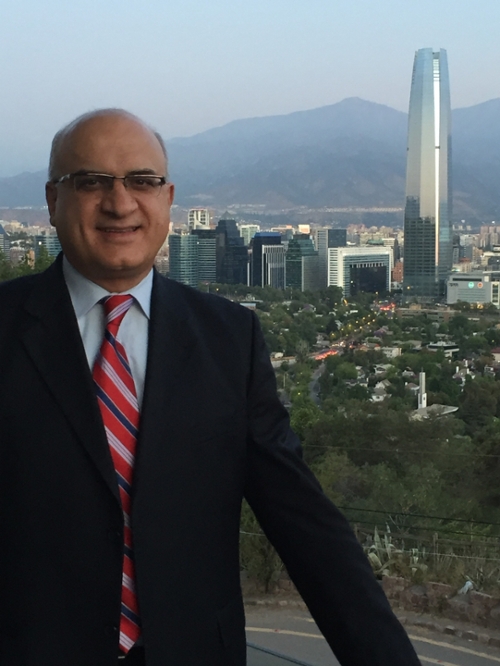
Patient care key to Dr. Haddad's role
As the new Unified Head for the Department of Medicine, Dr. Haddad is focused on both patient, and physician care
By Marg SheridanIt’s the largest department, but is often judged mainly by the sum of its’ parts.
And for the Department of Medicine that’s fine, as long as those parts are working to the best of their abilities – and for the new Unified Department Head, Dr. Sam Haddad, that’s a challenge he’s looking forward to managing head-on.
Haddad, who is the current Chair of the Board of Directors to the Canadian Heart Failure Society, left his position as the director of the heart failure program at the University of Ottawa Heart Institute – a position he had held for 15 years – to join the College of Medicine in April.
It wasn’t a decision he took lightly, but after having prepared himself for the better part of a decade by taking a series of senior leadership courses, Haddad was prepared to step into his first purely administrative position. And the CoM had all the pieces in place to provide an appealing first step.
“I think what I like about it is the opportunity,” Haddad explained regarding his decision to leave the nation’s capital. “There’s a very good team around me from the CoM, and health region, (and) I see this as a golden opportunity for me to contribute to the community.”
Haddad, who moved to Canada from Syria in 1986, completed his internship in internal medicine at Dalhousie University, before doing a cardiology fellowship at the University of Alberta in Edmonton. Cardiology has always intrigued Haddad, whose brother is also a cardiologist.
“I feel the heart is the centre of the universe,” he joked. “Every organ is important, but since my medical school years I’ve liked the heart and circulatory system.”
And his years as a front-line cardiologist mean that Haddad understands the pressures that physicians face in providing the best possible care to their patients.
“The most important thing is patient central care,” Haddad continued. “And this can be done by direct patient care, good teaching, and contributing to research because all these factor into the outstanding clinical care we can offer the patients in Saskatchewan.
“Nobody believes that we are perfect, but everybody believes there’s room for improvement and that’s what our goal is going to be over the next few years.”
As for the move to Saskatoon on a more personal level, there is one thing that has surprised Haddad.
“When I came out in March I thought it was going to be snowing - but fortunately the weather has been nice!”
